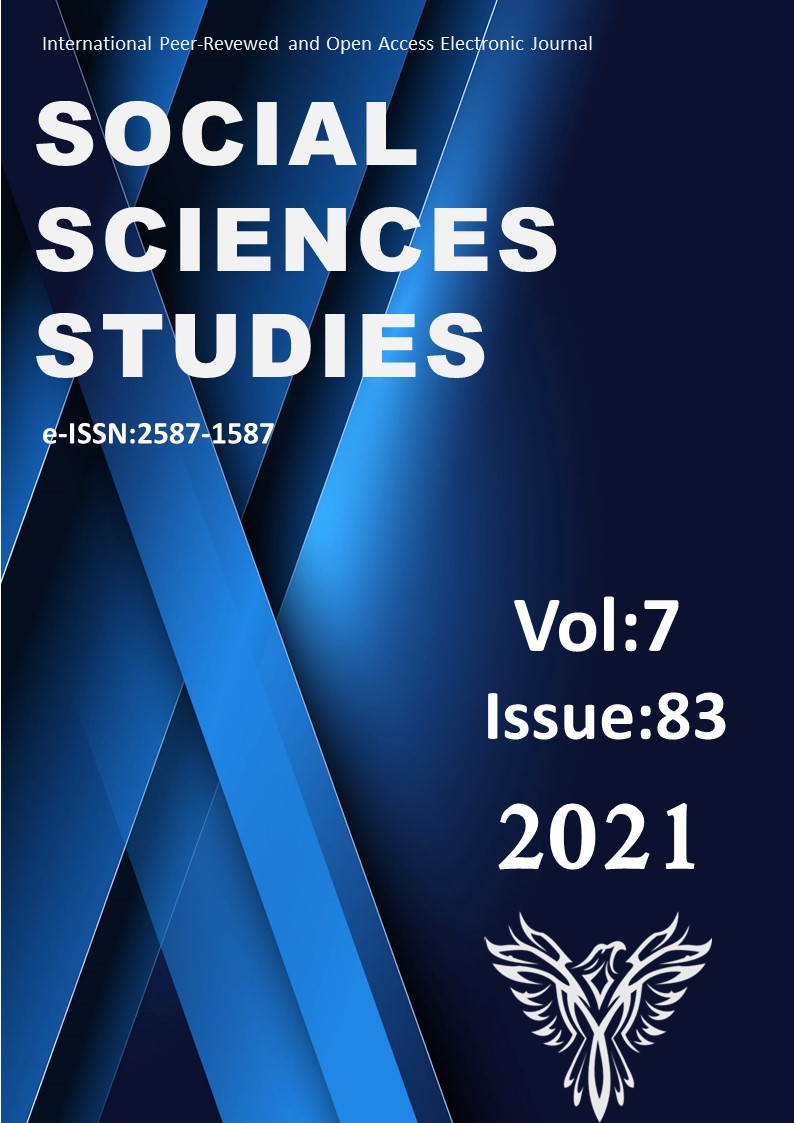Author :
Abstract
Bu çalışmanın amacı öğrencilerin toplumsal cinsiyet rollerine bakış açılarını ve anne çalışmasına yönelik tutumlarını incelemektir. Bir üniversitenin Sağlık Hizmetleri Meslek Yüksekokulunda 2019 yılında gerçekleştirilen bu araştırmanın örneklemini çalışmaya katılmayı kabul eden 153 öğrenci oluşturdu. Veri toplamada 13 soru ve 29 önermenin olduğu iki bölümden oluşan “Bilgi Formu” ve “Çalışan Annelere Yönelik Tutum Ölçeği” kullanıldı. Anketler uygulanmadan önce gerekli izinler alındı. Veriler Mann-Whitney U testi, Kruskall-Wallis H testi ve ki-kare analizi kullanılarak değerlendirildi. Araştırmaya katılan öğrencilerin %70.6’sı (n=108) kadın, %29.4’ü (n=45) erkektir. Üniversite öğrencilerinin çalışan annelere yönelik tutum ölçek puan ortalaması 62,65 ± 7,51’dir. Toplam puanlar açısından cinsiyetler arasında anlamlı bir farklılık saptanmadı (p>0,05). Önyargı / stigma değerleri ve annelik becerileri değerleri erkeklerde kadınlara göre daha yüksek olarak bulundu. Sonuç olarak, öğrencilerin toplumsal cinsiyet bakış açısına duyarlı görüşlere sahip oldukları ancak önyargılarını içeren görüşlerinin de devam ettiği belirlendi
Keywords
Abstract
This study aimed to examine students' perspectives on gender roles and their attitudes towards working mothers. This study was carried out between October and November 2020 at the Health Services Vocational School of a university. The sample of the study consisted of 153 students who accepted to participate in the study. An Information Form and the Attitudes Towards Working Mothers Scale, which consisted of 13 questions and 29 statements, were used as data collection tools. Permissions were obtained before the questionnaires were conducted. The data were evaluated using the Mann-Whitney U test, the Kruskal-Wallis H test, and the Chi-Square analysis. In terms of gender distribution, 70.6% (n = 108) of the students participating in the study were female and 29.4% (n = 45) were male. The mean score of university students' Attitudes towards Working Mothers Scale was 62.65 ± 7.51. There was no significant difference between genders in terms of total scores (p>0.05). Bias/stigma values and maternal skills values were found to be higher in men than in women. As a result, it was determined that the students had views that were sensitive to the gender perspective, but still they had biases.





